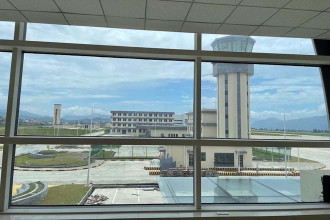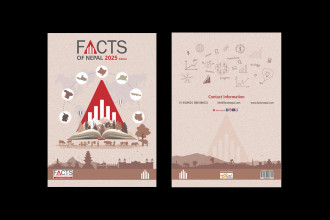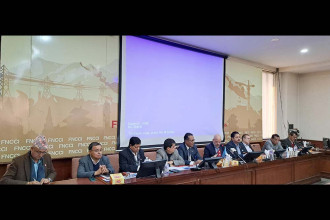-1715227803.jpeg)
KATHMANDU: A regional technical workshop of the Addis Tax Initiatives (ATI) is currently underway in Kathmandu. The event has attracted 60 participants, including tax administrators, experts, and representatives from development partners from 16 nations who are members of the ATI.
The workshop is organised by the Inland Revenue Department (IRD) and is supported by the Council of Economic Policy and the German Institute for Development and Sustainability. The decision to host the event in Kathmandu was made at last year's regional workshop held in the Philippines.
Speaking at the opening session, Revenue Secretary Ram Prasad Ghimire expressed optimism that the event will be instrumental in exploring solutions to the financial challenges faced by the ATI nations.
He expressed hope that the event would provide a roadmap for making tax administration transparent, accountable, and effective, achieving inclusive and sustainable development goals (SDGs) through fiscal mobilisation, and fostering collaboration among the ATI nations. He stated that the workshop would play a role in building a collective approach regarding upcoming revenue mobilisation and tax exemption policies by reviewing existing ones.
According to the organisation, the ATI is committed to promoting equitable and efficient domestic revenue mobilisation (DRM), enhancing policy coherence, and strengthening the social contract through collaborative partnerships and knowledge exchange. Originating from the Third International Conference on Financing for Development held in Addis Ababa, the capital of Ethiopia, in July 2015, the ATI has played a pivotal role in actualising the Addis Ababa Action Agenda (AAAA) and remains firmly integrated into the Financing for Development discourse.
-1715227803.jpeg)
-1715227803.jpeg)
On behalf of the ADDIS Board of Directors, Alistair Lobo emphasised the need to implement a tax system capable of supporting the member nations in achieving SDGs. He highlighted the need to increase the transparency of tax expenditures, reduce the tax burden on payers, and facilitate cost-benefit evaluation. "The workshop will contribute to developing a fair and transparent tax system, a regional mechanism, and achieving the SDGs," he said.
UNDP Resident Representative for Nepal, Ayshanie Medagangoda-Labé, praised the efforts of ATI nations towards the advancement of SDGs, expressing her expectation that the workshop would be effective for financial mobilisation.
IRD Director General Shiva Lal Tiwari said the event will be beneficial for enhancing Nepal's tax administration and sharing the experiences of Nepal's tax administration with the member nations.
Currently, the ATI comprises 32 partner countries, 20 development partners, and 22 supporting organisations. Its partner countries include Nepal, Afghanistan, Bangladesh, Benin, Burkina Faso, Cameroon, Ecuador, Ethiopia, Georgia, Ghana, Indonesia, Kenya, Liberia, Madagascar, Malawi, Maldives, Mauritania, Mongolia, Namibia, Niger, Pakistan, Paraguay, Philippines, Rwanda, Senegal, Sierra Leone, Solomon Islands, Tanzania, The Gambia, Togo, Uganda, and Zambia.
Likewise, the development partners include the United States of America, the United Kingdom, Australia, Belgium, Canada, Denmark, European Union, Finland, France, Germany, Ireland, Italy, South Korea, Luxembourg, the Netherlands, Norway, Slovakia, Slovenia, Sweden, and Switzerland.






